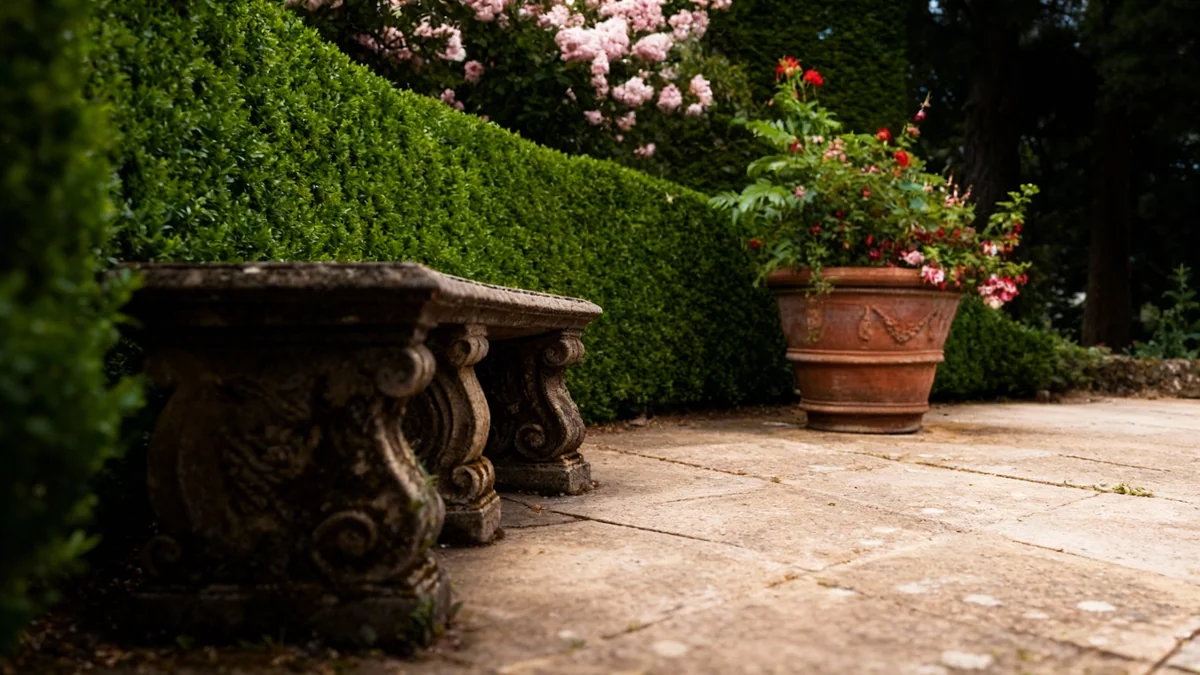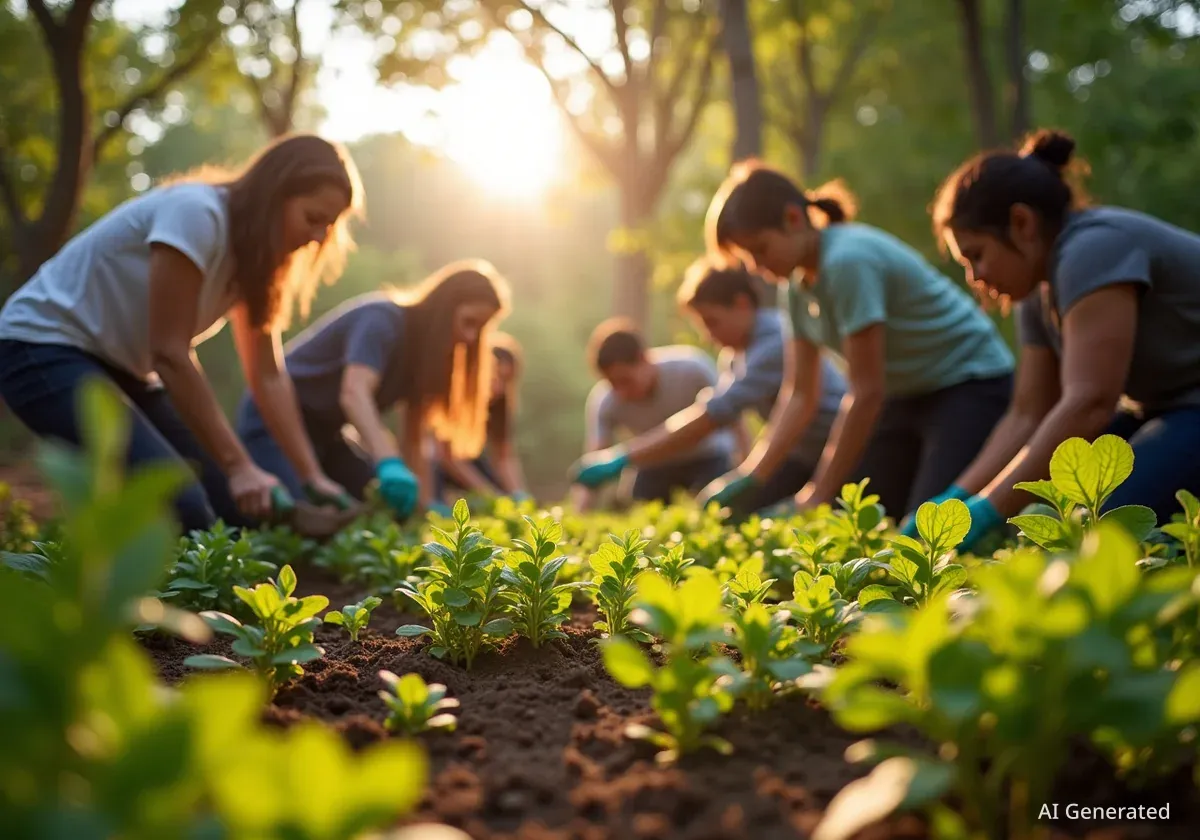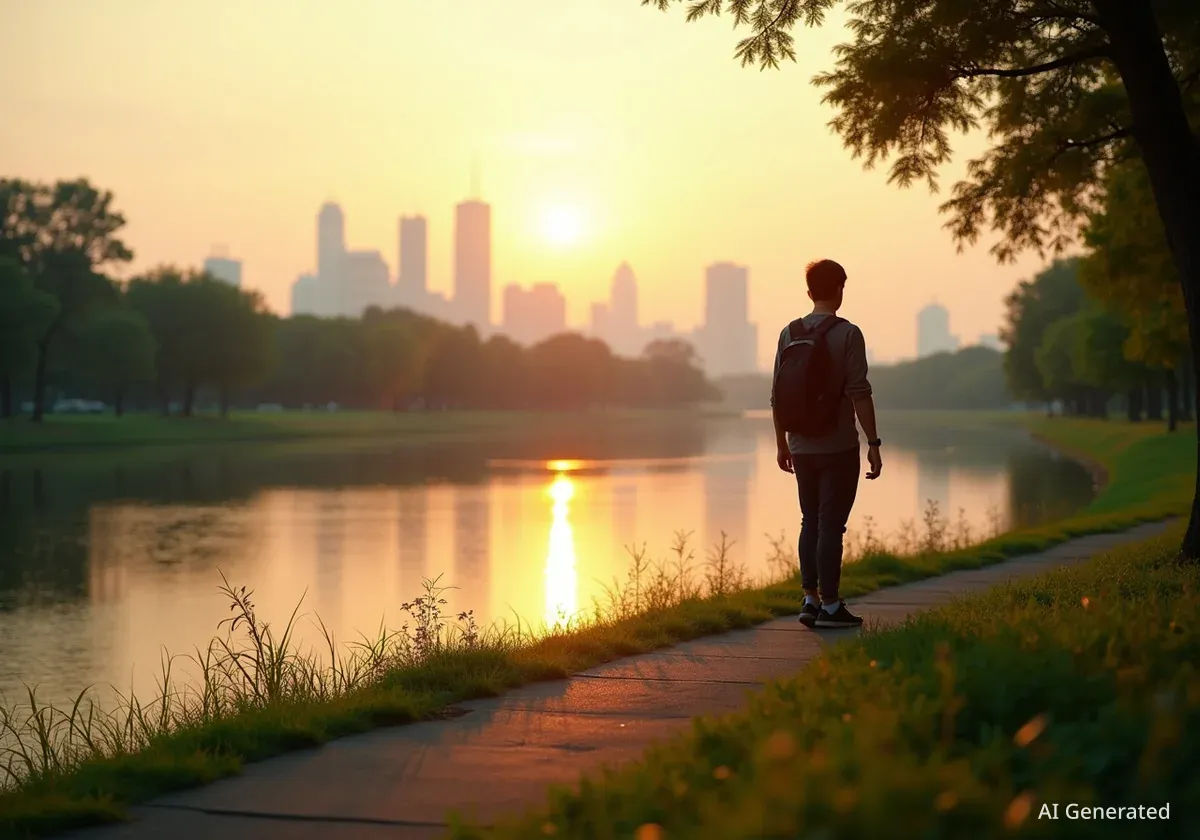A significant portion of domestic garden space across the UK has been paved over, according to a comprehensive new study by the Royal Horticultural Society (RHS). This extensive audit highlights a growing trend that reduces natural habitats and increases flood risks in urban and suburban areas.
Key Takeaways
- 42% of UK domestic garden space is paved over.
- Gardens provide an area three times larger than all UK national nature reserves combined.
- 18 million square meters of artificial grass exist across all cultivated green spaces.
- Gardens support over 50 million trees and numerous species, storing 158 million tonnes of carbon.
- There is unequal access to garden space across different UK regions.
Nearly Half of UK Gardens Lack Greenery
The RHS, in collaboration with AI mapping company Gentian, conducted the largest-ever audit of UK gardens. Researchers meticulously plotted 25.8 million gardens, covering an area of 959,800 hectares. This vast expanse represents 4.6% of the UK's total land area.
The findings reveal that 42% of this domestic garden space is now paved over. Front gardens are particularly affected, with 55% of their area covered by impermeable surfaces. Back gardens show a slightly better but still concerning figure of 36% paved space.
Did You Know?
UK gardens together are three times larger than all of the country's national nature reserves combined, making them a crucial resource for biodiversity.
The Rise of Artificial Surfaces
Beyond traditional paving, the study also identified a widespread adoption of artificial grass. A staggering 18 million square meters of artificial turf now covers cultivated green spaces nationwide. Of this, 7.5 million square meters are specifically within domestic gardens, further diminishing natural soil and plant life.
This trend has serious implications. Paving over gardens removes vital space for plants and soil to absorb rainwater. This exacerbates flood risks, especially in urban areas where natural drainage is already limited. It also contributes to a loss of biodiversity.
Gardens as Vital Ecosystems
Despite the increasing hardscaping, UK gardens remain incredibly important for nature. The RHS report highlights their immense ecological value. Gardens support more than 50 million trees, forming a critical green infrastructure.
These green spaces host approximately half of the UK’s butterfly, amphibian, and reptile species. They also provide habitat for over 40% of bird and mammal species. Furthermore, gardens play a significant role in climate regulation, storing an estimated 158 million tonnes of carbon.
"When people talk about the biodiversity crisis or nature loss they [generally] think about loss of wild plants or wildlife, they rarely think how cultivated plants and trees are also at risk and make a significant positive impact to our lives and our damaged planet," stated Professor Alistair Griffiths, Director of Science and Collections at the RHS.
Unequal Access to Green Space
The study also uncovered a notable inequality in the availability of garden space across different regions of the UK. For example, 41% of London's area was classified as garden. In contrast, Leeds had only 19%, Edinburgh 25%, and Cardiff 27%.
This disparity means many urban residents have limited or no access to private green spaces. Community gardens attempt to fill this gap, offering shared green areas. However, the report found that over a quarter of these community gardens operate on budgets of less than £500 per year. Less than 3% of community garden groups own their land, making their long-term sustainability uncertain.
Why Gardens Matter
Gardens are not just aesthetic features; they are crucial for urban cooling, carbon storage, and supporting a wide array of wildlife. Their permeable surfaces help manage rainwater, reducing the risk of localized flooding.
Call to Action for Homeowners and Government
The RHS is urging homeowners to reconsider paving over their gardens. Instead, they recommend using robust planting and permeable paving materials. These choices can help mitigate flood risk, enhance the cooling potential of gardens, and support local biodiversity.
The charity is also calling on the government to ensure "space to grow" in all new housing and urban planning. This would guarantee that every household has access to a garden or communal green space.
Clare Matterson, Director General of the RHS, commented, "That there isn’t equality in access to growing space in the UK reinforces the need to shore up garden provision in the 1.5m new homes promised by government this parliament. It also demonstrates the need to ringfence space and increase support and funding for the community growing spaces that should be considered an infrastructural basic."
The findings underscore the urgent need for a shift in how we view and manage our domestic outdoor spaces. Embracing more natural, permeable solutions can significantly benefit both the environment and urban communities.
- Protecting Nature: Gardens provide crucial habitats for diverse species.
- Flood Mitigation: Permeable surfaces allow water absorption, reducing runoff.
- Climate Resilience: Trees and plants help cool urban areas and store carbon.
- Community Well-being: Access to green space improves quality of life.





